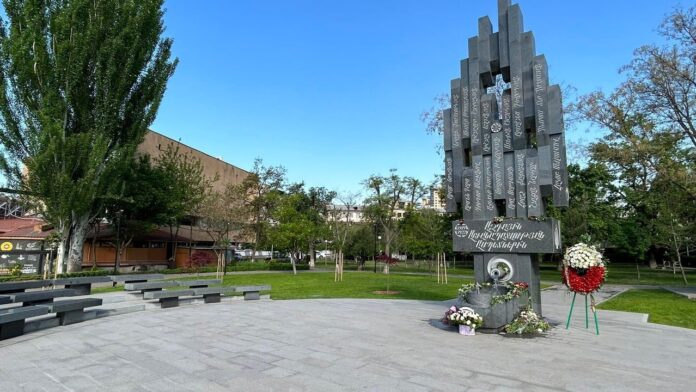By Karlen Aslanian
YEREVAN (Azatutyun) — Armenian Parliament Speaker Alen Simonyan on Thursday, May 4, voiced regret over Turkey’s reaction to a memorial to genocide avengers in Yerevan that he said was erected by the decision of local authorities and did not necessarily reflect Armenia’s foreign policy.
Speaking at a press conference in Ankara where he was attending a meeting of the Parliamentary Assembly of the Black Sea Economic Cooperation, a regional organization embracing over a dozen countries, including Armenia, Simonyan commented on Turkey’s decision to close its airspace for overflights by Armenian airlines.
Turkish Foreign Minister Mevlut Çavusoglu said on Turkish television earlier this week that banning Armenian airlines from operating flights through Turkish airspace was a response to “Armenia’s provocations,” including the recent inauguration in Yerevan of a memorial to participants in Operation Nemesis.
The operation pursued by a clandestine cell of the Armenian Revolutionary Federation was a 1920s program of assassinations of Ottoman perpetrators of the 1915 Armenian genocide and Azerbaijani figures responsible for 1918 massacres of Armenians in Baku.
Following the unveiling of the monument in the center in Yerevan on April 25, one day after Armenians in Armenia and around the world marked the 108th anniversary of the Ottoman-era Genocide, the Turkish and Azerbaijani foreign ministries issued statements condemning the event that was also attended by Yerevan’s Deputy Mayor Tigran Avinyan, a senior member of Armenia’s ruling Civil Contract party.








